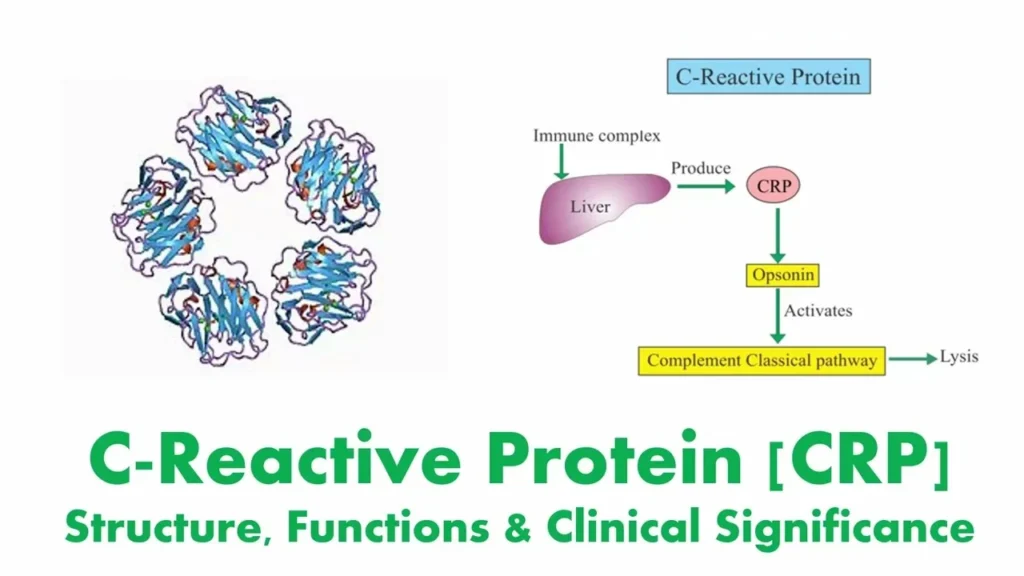RP Full Form: Understanding the Importance of C-Reactive Protein
CRP, is an essential blood test that helps diagnose and monitor various medical conditions. It is a protein that is produced by the liver in response to inflammation in the body. Measuring CRP levels can help healthcare professionals identify the presence of inflammation and the underlying medical condition that is causing it. In this article, we will explore the CRP full form, the importance of CRP testing, and its significance in diagnosing and monitoring different medical conditions.
Read Other Full Forms
What is CRP?
CRP is a type of protein that the liver produces in response to inflammation in the body. It is part of the acute phase response, which is a natural response to injury or infection. CRP is an important protein in the immune system that helps fight infection and promotes healing. It acts as an early warning sign of inflammation in the body and can be used to identify the underlying medical condition causing the inflammation.

CRP Full Form
The full form of CRP is a C-reactive protein. It is called “C-reactive” because it binds to a substance called C-polysaccharide found in the cell wall of certain bacteria.
How is CRP Test Performed?
A CRP test is a simple blood test that requires a small amount of blood to be drawn from a vein in your arm. The blood sample is then sent to a laboratory for analysis. The test results are usually available within a few hours or days.
Understanding CRP Levels
CRP levels can be measured in milligrams per liter (mg/L) of blood. Normal CRP levels are below 10 mg/L. Higher levels of CRP can indicate the presence of inflammation in the body.
Importance of CRP Testing
CRP testing is an essential tool for diagnosing and monitoring various medical conditions. It can be used to:
- Identify the presence of inflammation in the body
- Monitor the progression of chronic inflammatory diseases
- Identify the underlying medical condition causing the inflammation
- Monitor the effectiveness of treatment for inflammatory conditions
- Predict the risk of developing cardiovascular disease
Conditions That Cause High CRP Levels
High CRP levels can indicate the presence of inflammation in the body. The following medical conditions can cause high CRP levels:
- Infections
- Rheumatoid arthritis
- Lupus
- Inflammatory bowel disease
- Cancer
- Cardiovascular disease
- Diabetes
- Obesity
Conditions That Cause Low CRP Levels
Low CRP levels are generally not a cause for concern. However, they can indicate a low risk of developing cardiovascular disease.
Interpreting CRP Test Results
Interpreting CRP test results requires an understanding of the underlying medical condition and the context of the test. In general, higher CRP levels indicate the presence of inflammation in the body, while lower levels indicate a lower risk of developing cardiovascular disease.
Advantages and Disadvantages of CRP Testing
The advantages of CRP testing include its ability to identify the presence of inflammation in the body and monitor the effectiveness of treatment for inflammatory conditions. Disadvantages of CRP testing include its lack of specificity and the possibility of false positive results, which can occur if there is another medical condition present that is causing inflammation.
How to Prepare for a CRP Test?
In general, there is no special preparation required for a CRP test. However, your healthcare provider may advise you to avoid eating or drinking anything for a few hours before the test to ensure accurate results.
Conclusion
In conclusion, CRP testing is an essential tool for diagnosing and monitoring various medical conditions. It is a simple blood test that can provide valuable information about the presence of inflammation in the body and the underlying medical condition causing it. By understanding the importance of CRP testing, patients and healthcare professionals can work together to identify and manage various medical conditions more effectively.
Frequently Asked Questions
Q.1 What is a high CRP level?
A high CRP level is generally considered to be above 10 mg/L of blood.
Q.2 Is a high CRP level dangerous?
A high CRP level can indicate the presence of inflammation in the body and may be a sign of an underlying medical condition. It is important to consult with your healthcare provider to determine the cause and appropriate treatment.
Q.3 Can lifestyle changes lower CRP levels?
Yes, certain lifestyle changes such as regular exercise, a healthy diet, and quitting smoking can help lower CRP levels.
Q.4 What is the difference between CRP and ESR?
CRP and ESR (erythrocyte sedimentation rate) are both blood tests that indicate the presence of inflammation in the body. CRP levels rise more rapidly and can return to normal more quickly than ESR levels.
Q.5 Can medications affect CRP levels?
Yes, certain medications such as statins and nonsteroidal anti-inflammatory drugs (NSAIDs) can affect CRP levels.

